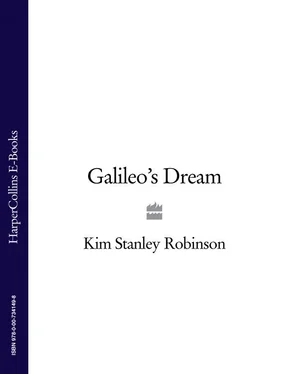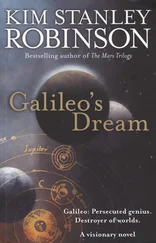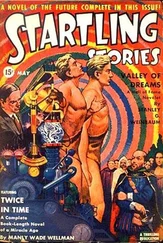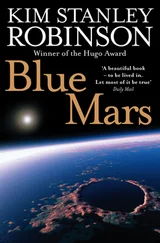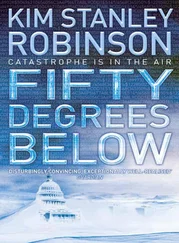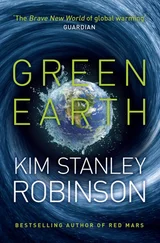GALILEO’S
DREAM
Kim Stanley Robinson

The Muses love alternatives.
- VIRGIL, Eclogues, Book III
Cover Page
Title Page GALILEO’S DREAM Kim Stanley Robinson
Epigraph The Muses love alternatives. - VIRGIL, Eclogues, Book III
Chapter One The Stranger
Chapter Two I Primi Al Mondo
Chapter Three Entangled
Chapter Four The Phases of Venus
Chapter Five The Other
Chapter Six A Statue Would Have Been Erected
Chapter Seven The Other Galileo
Chapter Eight Parry Riposte
Chapter Nine Aurora
Chapter Ten The Celatone
Chapter Eleven The Structure of Time
Chapter Twelve Carnival On Callisto
Chapter Thirteen Always Already
Chapter Fourteen Fear of the Other
Chapter Fifteen The Two Worlds
Chapter Sixteen The Look
Chapter Seventeen The Trial
Chapter Eighteen Vehement Suspicion
Chapter NineteenEppur Si Muove
Chapter Twenty The Dream
Authors Note
Acknowledgments
Other Books By Kim Stanley Robinson
Copyright
About the Publisher
All of a suddenGalileo felt that this moment had happened before-that he had been standing in the artisans’ Friday market outside Venice’s Arsenale and felt someone’s gaze on him, and looked up to see a man staring at him, a tall stranger with a beaky narrow face. As before (but what before?) the stranger acknowledged Galileo’s gaze with a lift of the chin, then walked toward him through the market, threading through the crowded blankets and tables and stalls spread all over the Campiello del Malvasia. The sense of repetition was strong enough to make Galileo a little dizzy, although a part of his mind was also detached enough to wonder how it might be that you could sense someone’s gaze resting on you.
The stranger came up to Galileo, stopped and bowed stiffly, held out his right hand. Galileo bowed in return, took the offered hand and squeezed; it was narrow and long, like the man’s face.
In guttural Latin, very strangely accented, the stranger croaked, ‘Are you Domino Signor Galileo Galilei, professor of mathematics at the University of Padua?’
‘I am. Who are you?’
The man let go of his hand. ‘I am a colleague of Johannes Kepler. He and I recently examined one of your very useful military compasses.’
‘I am glad to hear it,’ Galileo said, surprised. ‘I have corresponded with Signor Kepler, as he probably told you, but he did not write to me about this. When and where did you meet him?’
‘Last year, in Prague.’
Galileo nodded. Kepler’s places of residence had shifted through the years in ways Galileo had not tried to keep track of. In fact he had not answered Kepler’s last letter, having failed to get through the book that had accompanied it. ‘And where are you from?’
‘Northern Europe.’
Alta Europa. The man’s Latin was really strange, unlike other transalpine versions Galileo had heard. He examined the man more closely, noted his extreme height and thinness, his stoop, his intent close-set eyes. He would have had a heavy beard, but he was very finely shaved. His expensive dark jacket and cloak were so clean they looked new. The hoarse voice, beaky nose, narrow face, and black hair made the man seem like a crow turned into a man. Again Galileo felt the uncanny sensation that this meeting had happened before. A crow talking to a bear-
‘What city, what country?’ Galileo persisted.
‘Echion Linea. Near Morvran.’
‘I don’t know those towns.’
‘I travel extensively.’ The man’s gaze was fixed on Galileo as if on his first meal in a week. ‘Most recently I was in the Netherlands, and there I saw an instrument that made me think of you, because of your compass, which, as I said, Kepler showed me. This Dutch device was a kind of looking glass.’
‘A mirror?’
‘No. A glass to look through. Or rather, a tube you look through, with a glass lens at each end. It makes things look bigger.’
‘Like a jeweller’s lens?’
‘Yes.’
‘Those only work for things that are close.’
‘This one worked for things that were far away.’
‘How could that be?’
The man shrugged.
This was interesting. ‘Perhaps it was because there were two lenses,’ Galileo said. ‘Were they convex or concave?’
The man almost spoke, hesitated, then shrugged again. His stare went almost cross-eyed. His brown eyes were flecked with green and yellow splashes, like Venice’s canals near sunset. Finally he said, ‘I don’t know.’
Galileo found this unimpressive. ‘Do you have one of these tubes with you?’
‘Not with me.’
‘But you have one?’
‘Not of that type. But yes. But not with me.’
‘And so you thought to tell me about it.’
‘Yes. Because of your compass. We saw that among its other applications, you could use it to calculate certain distances.’
‘Of course.’ One of the compass’s main functions was to range cannon shots. Despite which very few artillery services or officers had ever purchased one. Three hundred and seven of them, to be precise, over a period of twelve years.
The stranger said, ‘Such calculations would be easier if you could see things further away.’
‘Many things would be easier.’
‘Yes. And now it can be done.’
‘Interesting,’ Galileo said. ‘What is your name again, signor?’
The man looked away uneasily. ‘I see the artisans are packing to depart. I am keeping you from them, and I must meet a man from Ragusa. We will see each other again.’
With a quick bow he turned and walked along the tall brick side wall of the campiello, hurrying in the direction of the Arsenale, so that Galileo saw him under the emblem of the winged lion of St Mark which stretched in bas relief over the lintel of the great fortress’s entryway. For a second it looked as if one bird-beast were flying over another. Then the man turned the corner and disappeared.
Galileo turned his attention back to the artisans’ market. Some of them were indeed leaving, in the afternoon shadows folding up their blankets and putting their wares into boxes and baskets. During the fifteen or twenty years he had been advising various groups in the Arsenale, he had often dropped by the Friday market to see what might be on display in the way of new tools or devices, machine parts and so on. Now he wandered around through the familiar faces, moving by habit. But he was distracted. It would be a good thing to be able to see distant objects as if they were close by. Several obvious uses sprang to mind immediately. Obvious military advantages, in fact.
He made his way to one of the lensmakers’ tables, humming a little tune of his father’s that came to him whenever he was on the hunt. There would be better lenses in Murano or Florence; here he found nothing but the usual magnifying glasses. He picked up two, held them in the air before his right eye. St Mark’s lion couchant became a flying ivory blur. It was a poorly done bas relief, he saw again with his other eye, very primitive compared to the worn Roman statues under it on either side of the gate.
Galileo put the lenses back on their table and walked down to the Riva San Biagio, where one of the Padua ferries docked. The splendour of the Serenissima gleamed in the last part of the day. On the riva he sat on his usual post, thinking it over. Most of the people there knew to leave him alone when he was in thought; he could get furious if disturbed. People still reminded him of the time he had shoved a bargeman into the canal for interrupting his solitude.
Читать дальше
